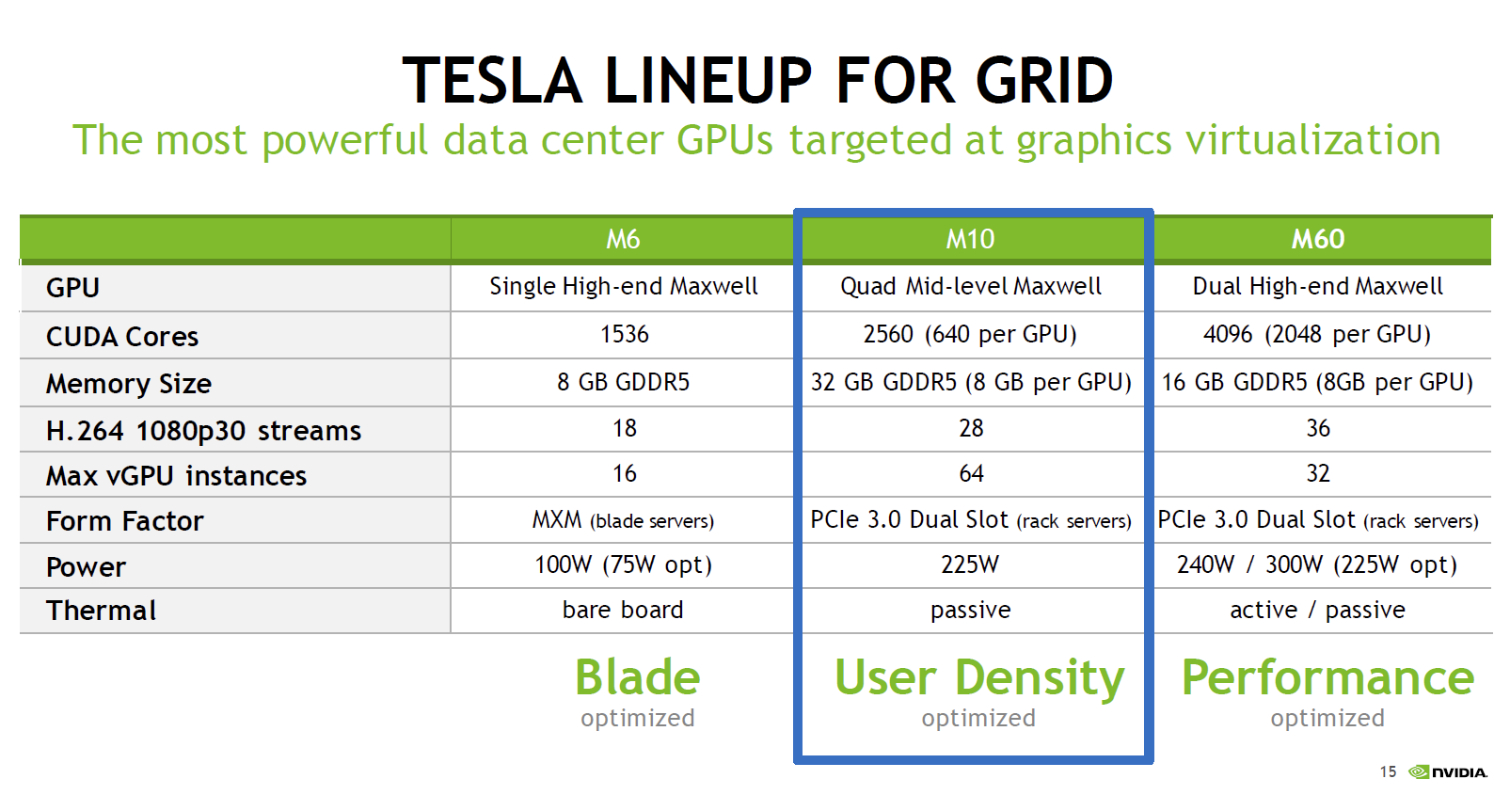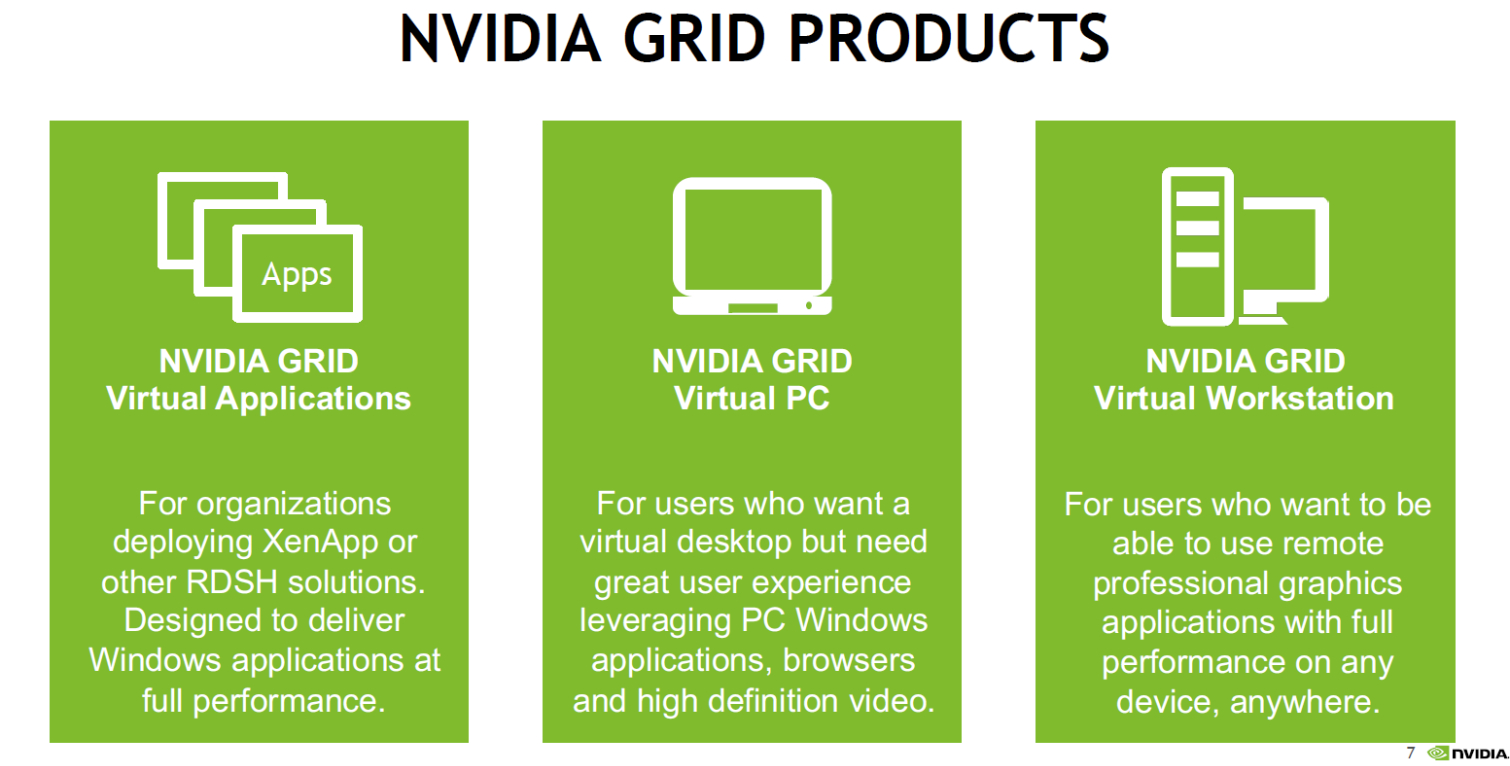Nvidia's Tesla M10 GPU Designed For Cost-Effective Enterprise Desktop Virtualization
Nvidia revealed a new member of its GRID enterprise GPU lineup. The company said the Tesla M10 offers the highest user density in the industry, allowing enterprises an affordable avenue into desktop virtualization.
Business applications aren’t what they used to be. In the past, you didn’t need a very powerful computer to run the applications that most businesses use, but these days, application suites like Microsoft Office 2016, Adobe applications such as Photoshop and Reader, and even modern web browsers take advantage of GPU acceleration. And as organizations adopt Windows 10, the GPU load will only increase. Nvidia said that Systrack Community data provided by Lakeside Software indicates that there are twice as many users of accelerated apps today as there were in 2011, and that “half of that growth” is from this year alone.
Nvidia’s Tesla M6 and Tesla M60 GPU are designed for heavy workload applications that would be used by designers and architects. The M10 is the latest addition to the lineup, and it was designed with user density in mind. The M6 can support 16 simultaneous vGPU instances, and the M60 can handle up to 32. The M10 supports up to 64 concurrent vGPU instances, depending on the demands of the application being served.
The M10 features four mid-level Maxwell GPUs with 640 Cuda cores each (2,560 total), and the card is equipped with 32 GB of GDDR5 memory (8 GB per GPU). Nvidia said that you can install two M10 cards into the same server, which would provide up to 128 concurrent sessions. The card is designed to occupy two slots of a rack mount case. Each M10 draws 225W and features passive cooling.
The Tesla GPUs pair with Nvidia’s Grid software. Grid is available in three flavors: Nvidia Virtual Application (vApps), which is used to host accelerated virtual office applications, such as Microsoft Outlook and Word or Adobe Reader; Nvidia Virtual PC (vPC), which can host fully functional virtual PCs running Windows 7, 8 or 10, along with their respective applications; and Nvidia Virtual Workstation (vWS), which provides all the power of a workstation from within the data center, making it possible to access professional graphics applications remotely.
Nvidia said that Grid is “supported by every enterprise OEM” and is “fully compatibility with every PC application.”
Nvidia didn’t give an exact price for the Tesla M10 card, but we did get a ballpark figure of $2,500 per unit. The Grid software is an additional charge. Nvidia said that hosted applications can be less than $2 per month, per user, and virtual desktops cost less than $6 per month, per user. Nvidia said that licenses are available as an annual subscription, which can be paid up to three years in advance. The company also offers a perpetual licensing model.
Get Tom's Hardware's best news and in-depth reviews, straight to your inbox.
Nvidia said that the latest Grid software is available today. Tesla M10 hardware will be available in August.
Follow Kevin Carbotte @pumcypuhoy. Follow us on Facebook, Google+, RSS, Twitter and YouTube.
Kevin Carbotte is a contributing writer for Tom's Hardware who primarily covers VR and AR hardware. He has been writing for us for more than four years.


